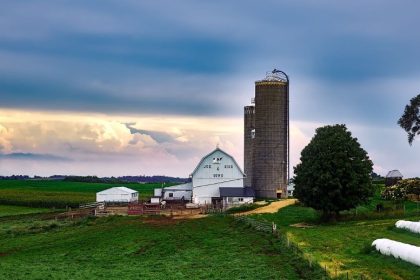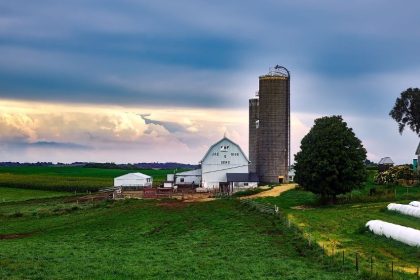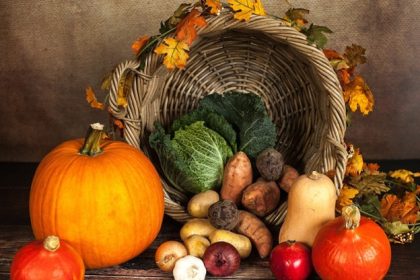Battling Over Farm Bill Starts Even Before Congress Returns to DC

WASHINGTON — Congress won’t return to Washington until Sept. 12, but already the battle lines are being drawn over proposed additions to the upcoming farm bill.
As a result, those drafting the massive agriculture and nutrition spending package have already conceded that a passable bill likely won’t be ready until late December, two full months after the most recent farm bill is set to expire.
On Tuesday, a bipartisan group of senators led by a trio of Democrats — Sens. Cory Booker, D-N.J., Alex Padilla, D-Calif., and Dianne Feinstein, D-Calif. — sent a letter to their chamber’s Agriculture Committee urging it not to include a provision known as the Ending Agricultural Trade Suppression Act in the 2023 Farm Bill.
The EATS Act was introduced to overturn California’s Proposition 12, which established requirements for the humane raising of animals destined to be turned into pork, egg and veal products.
The National Pork Producers Council and the American Farm Bureau Federation immediately challenged Proposition 12, arguing it violated a doctrine known as the dormant commerce clause — the idea that the Constitution’s delegation of power over interstate commerce to Congress precludes states from passing laws that discriminate against that commerce.
In particular, they contended that states like California cannot require out-of-state businesses to operate in a particular way to sell their products in California.
The 9th U.S. Circuit Court of Appeals later upheld the law, and in May, the U.S. Supreme Court followed suit, rejecting the challengers’ argument that past precedent prohibits virtually all state laws that have the “practical effect of controlling commerce outside the state,” even if the laws do not intentionally discriminate against out-of-state economic interests.
Writing for the court, Justice Neil Gorsuch said each of the cases cited by the petitioners typified “the familiar concern with preventing purposeful discrimination against out-of-state economic interests.”
He went on to write that adopting the challengers’ positions “would cast a shadow” over a number of existing state laws currently regarded as constitutional, even though they may affect behavior outside the states that enact them.
Proposition 12 bars the sale in California of pork products when the seller knows or should know that the meat came from the offspring of a breeding pig (also known as a sow) that was confined “in a cruel manner.”
Among other things, the California law requires sows to have at least 24 square feet of living space.
Supporters of the Ending Agricultural Trade Suppression Act raise many of the same arguments the Supreme Court has already rejected, mainly that it would prevent states like California from passing a law that would impact production practices in other states.
But opponents, including the senators that sent out the letter Tuesday, argue the law is a particularly “draconian” attempt to negate state and local laws even if there is no federal standard to take their place.
They further argue the act would “harm America’s small farmers, threaten numerous state laws, and infringe on the fundamental rights of states to establish laws and regulations within their own borders.”
“The EATS Act would drastically broaden the scope of federal preemption, and disregard the wisdom of duly enacted laws that address local concerns,” the letter states. “Demand from consumers, food companies and the farming community has propelled 15 states to enact public health, food safety and humane standards for the in-state production and sale of products from egg-laying chickens, veal calves and mother pigs. The EATS Act was introduced with the primary goal of undermining these standards.”
The Senate bill, S.2019, was introduced by Sen. Roger Marshall, R-Kan., on June 15, and had two readings before being referred to the Agriculture, Nutrition and Forestry Committee. The companion House bill, introduced by Rep. Ashley Hinson, R-Iowa, has been referred both to the House Agriculture and House Judiciary Committees.
“The United States is constantly faced with non-tariff trade barriers from protectionist countries, hurting American agriculture’s access to new markets,” Marshall said in a written statement the day he introduced his legislation.
“The last thing we need is a big state like California imposing its will on ag-heavy states like Kansas with regulations that will also restrict our ability to trade among the states,” he said.
“This is a matter of states’ rights. If California wants to regulate agriculture in its own state, that’s fine, but California’s rules should not apply to Kansas, whose Legislatures never approved of these regulations,” Marshall added.
In a press release, Hinson pointed to a line from Gorsuch’s rulings in which he noted, “Congress has yet to adopt any statute that might displace Proposition 12 or laws regulating pork producing in other states.”
The EATS Act addresses this deficiency and will ensure Iowa farmers can continue producing high-quality food while protecting free market interstate commerce, the congresswoman said.
“Prop 12 allows radical activists in California — who don’t know the first thing about farming or raising animals — to regulate how farmers do their job, devastating small family farms and undermining food security,” Hinson continued. “Our farmers take great care of their animals and ensure families have safe, affordable and high-quality food on the table. I am proud to lead the EATS Act to stand against this ‘bacon ban,’ ensure farmers can continue to feed the nation and protect interstate commerce.”
The letter writers believe the bills will not only have a sweeping, negative impact on agriculture, but also “open the floodgates to unnecessary litigation.”
“The range of potentially impacted laws includes measures aimed at protecting states from invasive pests and infectious disease, health and safety standards, consumer information safeguards, food quality and safety regulations, animal welfare standards and fishing regulations,” they write.
They go on to detail some of the areas they believe will be adversely impacted by inclusion of the act in the farm bill.
These include:
Alabama, Iowa, Nebraska and South Dakota, which regulate the labeling of bitter almonds or prohibit their sale as a poison. Florida similarly prohibits the sale of citrus fruits containing arsenic.
Arkansas, Connecticut, Florida, Illinois, Indiana, Massachusetts, Minnesota, New York, Oregon, Utah, Vermont and Wisconsin have laws that restrict the importation of firewood in order to prevent the spread of invasive pests and diseases.
Additionally, at least 23 states have restrictions on the importation of ash trees in order to prevent the spread of the emerald ash borer.
Alabama, Florida, Louisiana, South Carolina and Texas are among states that have passed laws to prevent the spread of the Asian citrus psyllid, which causes citrus greening, and many states have implemented regulations to protect iconic species of trees that grow in various regions of the United States.
Arkansas, Kansas, Louisiana, Pennsylvania and Texas have laws governing sales within their states of seeds and seed oils.
And dozens of states have enacted laws on noxious weeds, rules for spraying manure on fields, sourcing requirements and many other agricultural matters.
“Demand from consumers, food companies and the farming community has propelled 15 states to enact public health, food safety and humane standards for the in-state production and sale of products from egg-laying chickens, veal calves and mother pigs,” the letter writers continue. “The EATS Act was introduced with the primary goal of undermining these standards — particularly California’s Proposition 12, in response to the Supreme Court’s recent decision upholding that law.
“Yet it is clear that the impacts of the EATS Act would be far broader, impacting food safety, farm worker protections and environmental standards while ignoring the will of voters and infringing on states’ rights,” they said.
How quickly this disagreement gets resolved is anyone’s guess.
In recent weeks Senate Minority Leader Mitch McConnell, R-Ky., has suggested the farm bill will be late, but also said in the end, lawmakers will resolve their differences and a bill will be passed this year.
Sen. Debbie Stabenow, D-Mich., the chairwoman of the Senate Agriculture Committee, has also adopted a “What me worry attitude,” pointing out to reporters that the 2018 Farm Bill also wasn’t passed on time.
Like McConnell, Stabenow’s public statements suggest she’s also anticipating that a bipartisan farm bill will be signed into law by the end of the calendar year.
So what happens if there is a delay?
Well, first of all, as Stabenow and others have implied, a late passage is not the end of the world — and hardly uncommon.
According to the Congressional Research Service, a variety of factors have prevented timely passage in recent years, including there being insufficient votes to pass the House floor and presidential vetoes.
In almost every case, these delays have resulted in short-term program extensions.
CRS notes the 2002 Farm Bill expired at the end of 2007, and parts were extended in the spring of 2008; the 2008 Farm Bill expired at the end of 2012 and was extended for one year in 2013.
In the alternative, the 2014 Farm Bill was not extended because the 2018 Farm Bill was enacted during the period between the end of the fiscal year and the end of the calendar year.
So what of specific programs themselves?
For programs with a fiscal year authorization that are funded with discretionary appropriations, or for programs with mandatory spending authorized but not appropriated by the farm bill — such as the Supplemental Nutrition Assistance Program — an appropriations act or continuing resolution could allow operations to continue.
For programs with mandatory funding that is provided by the farm bill and have provisions that expire at the end of FY 2023, authority to operate may cease.
For the farm commodity and dairy support programs that expire after the 2023 crop year, the consequences of expiration begin on Jan. 1, 2024, when inactive and outdated laws — commonly called “permanent law” — would be restored for dairy, the first commodity affected in the new crop year.
Some programs had their expiration dates extended beyond the expiration of the farm bill by other legislation. For example, the Inflation Reduction Act of 2022 extended some — but not all — conservation programs through FY 2031.
Finally, there are programs, such as crop insurance, that are permanently authorized, do not expire, and would not be affected by farm bill expiration.
Dan can be reached at [email protected] and @DanMcCue
























